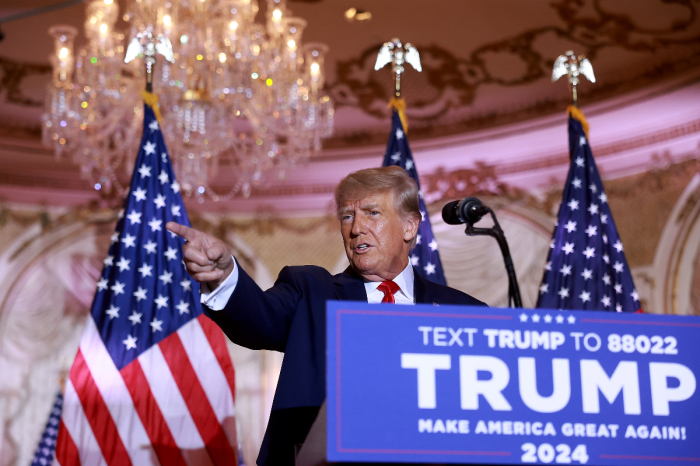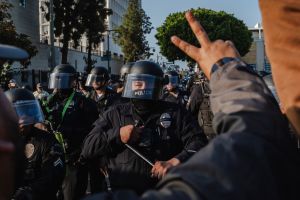Trump vows to create federal task force combating 'anti-Christian bias' in second term

Facing the prospect of being thrown off the ballot in at least one state in the 2024 election, former President Donald Trump is pledging to create a federal task force to combat what he called "anti-Christian bias."
During a campaign stop Tuesday in Waterloo, Iowa, Trump pledged to "end the war on Christians" if reelected to a second term at an event held within minutes after the Colorado Supreme Court ruled that he could not be placed on the 2024 presidential primary election ballot due to his alleged connection to the Jan. 6 Capitol riot in 2021.
Under the Biden administration, Trump added, "Christians and Americans of faith are being persecuted and government is being weaponized against religion like never before."
The 77-year-old cited a House Judiciary Committee report released in August, which alleges the FBI targeted traditional Catholics as "potential domestic terrorists." Trump warned Evangelicals could be next.
"Evangelicals will not be far behind because when that starts, it starts happening on a very major scale," he said. "When I'm back in the White House, never again will your government be used to target Christians and other religious beliefs."
Part of that effort, Trump said, would be the creation of a federal task force aimed at "fighting anti-Christian bias" under what the former president said would be a "fully reformed" Justice Department.
Trump said the task force would focus on investigating "all forms of illegal discrimination harassment and persecution against Christians in America."
"They are going after Christians," he added. "Americans of faith are not a threat to our country. Americans of faith are the soul of our country and they have been from the beginning."
Trump also criticized Biden for omitting the birth of Christ from his speech at the annual National Christmas tree lighting on Nov. 30.
"He completely failed to even mention the birth of Jesus Christ, which is hard to do if you're celebrating Christmas, right?" said Trump. "He didn't mention Jesus Christ in his remarks, not for three years he hasn't mentioned that, and barely mentioned God."
Since taking office, Biden has repeatedly faced criticism for omitting references to Jesus in addresses marking Christmas and Easter, two of Christianity's highest holy days.
In his remarks to supporters in Iowa, Trump did not mention the opinion released by Colorado's highest court, which found he is ineligible to be on the state ballot next year, partially overturning a lower court decision.
Specifically, the high court cited Section 3 of the 14th Amendment of the U.S. Constitution, which prohibits people who "have engaged in insurrection or rebellion against the same, or given aid or comfort to the enemies thereof from holding office."
"President Trump is disqualified from holding the office of President under Section Three; because he is disqualified, it would be a wrongful act under the Election Code for the Secretary to list him as a candidate on the presidential primary ballot," read the per curiam decision.
A Trump spokesperson released a statement in which the former president vowed to appeal what he called a "completely flawed decision."
In a dissent, Colorado Chief Justice Brian Boatwright argued that his colleagues went beyond the court's scope by ruling that Trump had engaged in insurrection.
"Unlike qualifications such as age and place of birth, an application of Section Three requires courts to define complex terms, determine legislative intent from over 150 years ago, and make factual findings foreign to our election code," wrote Boatwright.
"Dismissal is particularly appropriate here because the Electors brought their challenge without a determination from a proceeding (e.g., a prosecution for an insurrection-related offense) with more rigorous procedures to ensure adequate due process."
Ian M. Giatti is a reporter for The Christian Post and the author of BACKWARDS DAD: a children's book for grownups. He can be reached at: ian.giatti@christianpost.com.



























